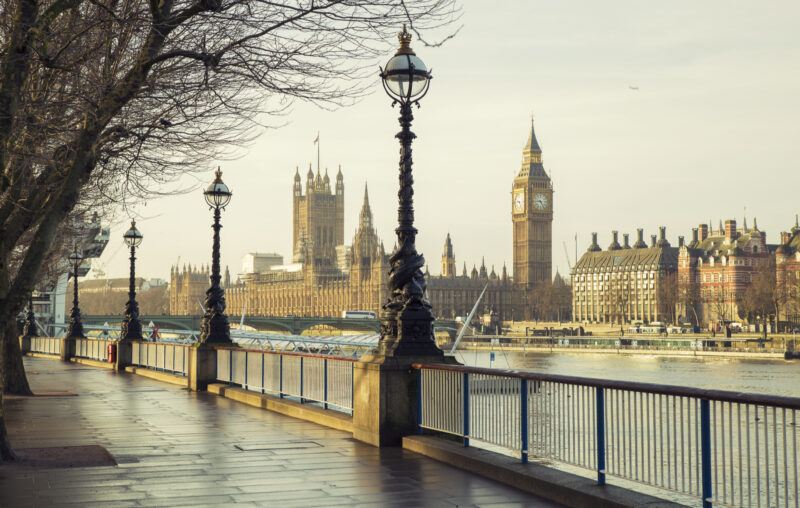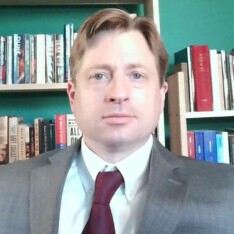I’ve been painting the rooms of the house I purchased just last year. Admittedly, I am slow to finish the job. I also suspect people would ask serious questions about my choice of color-schemes. In one room, I’ve painted the walls royal purple. I think a number of people, including my own siblings, would cast aspersions on my sense of style. Even a little part of me says, “Purple? Preposterous!” And yet, it was my choice and I do not regret it. I like how purple walls make me laugh. But what does this silly choice have to do with anything serious? It raises the obvious question. In what areas of life must people be free to choose?
A political ideology is not a static thing. It is quite dynamic over time. Liberalism, for example, has grown from a theory of individual liberty, responsibility, and choice (called classical liberalism these days) into the institutions of social and economic planning for the whole country (liberalism, generally understood). In truth, liberalism has expanded to become a theory of global planning as well. These institutions of national and global organization are deliberately designed to give the illusion of options to the citizen while the substance of the choice is made by technocratic planners deep in the halls of bureaucracy. Gilbert Keith Chesterton warned his contemporaries against this. A century later, we might profit from revisiting the words of the self-proclaimed “last liberal,” G. K. Chesterton.
I think Chesterton would appreciate the example of painting one’s walls a peculiar color to satisfy one’s own taste. He certainly agreed with the sovereignty of the homeowner. A man’s home is his castle, in which he is king. Undoubtedly, a queen is likewise sovereign over her castle. If the old saying feels trite, it is no cliché. Chesterton recognized the increasing conformity and uniformity of industrialization and managerialism imposed on the world of his time, the early twentieth century. He once wrote, “Anyone stepping out of the front-door is obliged to step into a procession, all going the same way and to a great extent even obliged to wear the same uniform.” Today, his words remind me of a busy, urban sidewalk or a morning commute to work. These forces remain powerful in our own early twenty-first century. To combat them, he affirmed the home as the place where the ordinary citizen is at liberty “to decorate and choose, to create, to be the artist.” Even in painting the walls of your house, there is a certain dignity and fundamental choice in play.
Of course, Chesterton defended a simple thing for profound reasons. Citizens have far more serious choices to make than color palettes at the paint store. For Chesterton, simple liberty of choice is of the same kind as deep choices of morality. Chesterton’s understanding of liberalism begins with the Christian doctrine of the Fall of Man: Human beings are here on the earth with the inherent task of choosing right from wrong. From this foundational tenet, that jolly English journalist derived the concept of liberty to mean that political activity must be based on consent. Each individual inherently possesses the responsibility to choose. Governmental institutions must respect that condition.
I discovered Chesterton in graduate school while taking a class on the political theory of liberalism. The discovery was quite an accident – and certainly fortuitous. While studying at my computer one night, a pique of annoyance compelled me to type into the search engine: “What’s wrong with the world?” I did not expect a real answer, but the search returned a link to Chesterton’s book of the same name. Who knew that someone had answered that eternal question? I did not. And it is surprisingly easy to convey Chesterton’s answer. Question: What’s wrong with the world? Answer: Me. Of course, this is only Christianity and the doctrine of the fall. Original sin means that all people are inherently flawed and will sometimes choose evil over good. Nonetheless, people can also choose good. They must be free to do so.
It might run afoul of people’s sensibilities to build a theory of liberalism from Christianity. I am sure it does for some people. The larger point here is that Chesterton found a deeply meaningful reason to enshrine individual choice as the root of liberty. As it turns out, most liberal thinkers have surprisingly shallow reasons these days. That has been my conclusion, at least. Though he is known as a great defender of liberty in the nineteenth century, John Stuart Mill seems mostly concerned with his own freedom of expression for his own reasons. A number of liberals seemed to follow in those footsteps. Liberty preserves self-expression, and that is most important for those with something to express. There is a certain selfish haughtiness to it. As it goes, Mill himself endorsed a qualified system of positivism, meaning he thought technocratic experts should exercise certain controls over social and economic affairs to ensure their proper functioning. There is definitely a haughtiness to technocracy.
Around the mid-twentieth century, Isaiah Berlin developed an argument that individual choice was a central pillar of liberalism only because one person’s value judgments are as good as another’s. In essence, he elevated relativism as the centerpiece of individual liberty, hardly a solid foundation of thought for a political theory. A few decades later, John Rawls all-but-contended that individual choice is acceptable where it does not injure social welfare. His argument is long, convoluted, and often tedious, but he does not hold to any philosophical or religious understanding of why individual choice is essential to a human life. As I see it, this is a serious degradation in the ideology of liberalism. Whereas liberty, equality, and the right to make fundamental choices in life was essential in John Locke and G. K. Chesterton, these ideals have been downgraded by later, prominent thinkers within the broad school of liberalism.
With the profound origins of liberty removed, liberalism itself has yielded to technocracy. Rather insidiously, we today have the doctrine of “libertarian paternalism” parading as the pragmatic and effective theory of liberalism for the twenty-first century. Most popularly articulated by Cass Sunstein and Richard Thayler, libertarian paternalism (which is a mouthful of oxymoron) also goes by the simple description of “a nudge.” Thaler and Sunstein argue that people often make the wrong choice, especially in the realms of social and economic policy. These two thinkers have put forth the contention that true liberty requires a technocratic scheme to “nudge” people in the right direction. After all, what good is choice if you choose wrongly? Or so they suggest.
If Chesterton provokes a debate by founding liberalism in Christianity, a debate also follows when technocrats and government planners found liberalism in material outcomes. Making liberty and choice into religious imperatives (Choose the Good!) places demands on the government (Thou shalt allow individual choice!). Likewise, making the outcome of choice the highest purpose (the choice must be efficient, if not optimal, to be allowed) places very different demands on government (options must be structured to yield positive outcomes). Thaler and Sunstein argue for social and economic institutions to structure the options available to individuals so that people cannot make the wrong choice. The wrong choice is simply not an option. Of course, the wrong choice is only that which goes against the desired policy outcomes of elected officials and the technocratic planners who guide them. This is not libertarian in the least. It certainly is paternalistic though.
Chesterton did not shy away from investigating the origins of our political ideals and social goals. If the investigation led to Christianity, so be it. He was honest about religion serving as the foundation of his politics. John Stuart Mill significantly altered liberalism by shrugging at its foundations. More formally, Isaiah Berlin argued that foundational beliefs are personal. They are held for personal reasons, not rational reasons. Not being rationally held, there is no use in publicly discussing them. John Rawls completed this transition in liberalism by proposing a new rule for liberal societies: Do not bring your foundational beliefs, held for personal reasons, to the public square. Bring only your facts, evidence, and maybe a secular principle or two. Mill, Berlin, and Rawls especially shied away from and then banished the fundamental value of individual choice and individual rights within the theory of liberalism. Technocrats like Sunstein and Thaler were happy to walk through that open door and, in the name of liberalism, structure social and economic options so that people could not choose wrongly. Indeed, people under those institutions are not exercising choice in any meaningful sense. They are selecting from the pre-designed options others have chosen for them.
I find it immeasurably worthwhile to return to Chesterton. His novels are still entertaining, and I am repeatedly astonished at how relevant his old critiques are. He certainly was well-aware of the dangers of the social and economic planners. Chesterton lived in the era of eugenics, social Darwinism, and scientific racism. He was equally wary of economic monopoly and socialist meddling. Chesterton found the Christian doctrine of the Fall an inspiring start to the discussion of human nature, for it defended an inherent and unchanging nature rooted in individual liberty. To oppose the technocratic fashioning of humanity by the scientific elite and to reject the nihilism lurking in the shadow of liberal relativism, Chesterton rallied to the call of an inherent human nature. It seems like the right way to make an argument for meaningful individual liberty.
The trouble with removing foundational arguments altogether is that it leaves us in no position to argue that technocracy is fundamentally and essentially wrong. We may seek to prove it bankrupt on its own terms. (Indeed, this should not be difficult, if the national debt and Congress’s annual deficits are entered in evidence.) Still, a strictly-empirical analysis of the topic cannot rule out technocratic control in itself. At best, that form of argumentation will demonstrate the technocrats are failing- for now. In time, they might improve their methods. Stranger things, perhaps, have happened. Chesterton’s liberalism holds that technocratic control of the economy is inherently wrong because it denies something fundamental in human nature: the responsibility to make moral choices of right and wrong. That, along with choosing the colors of one’s interior walls, ought not be removed from our frame of reference when discussing liberty. In the spheres not only of personal aesthetics, but of morality, economics, healthcare, and more, a choice is fundamental to liberty.




